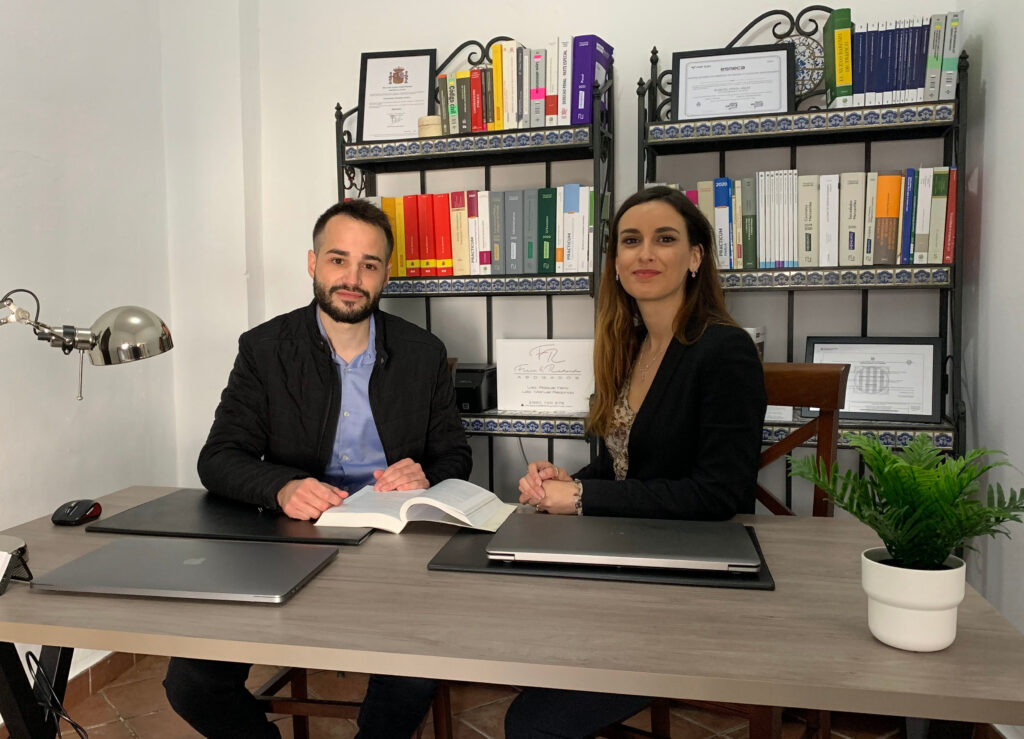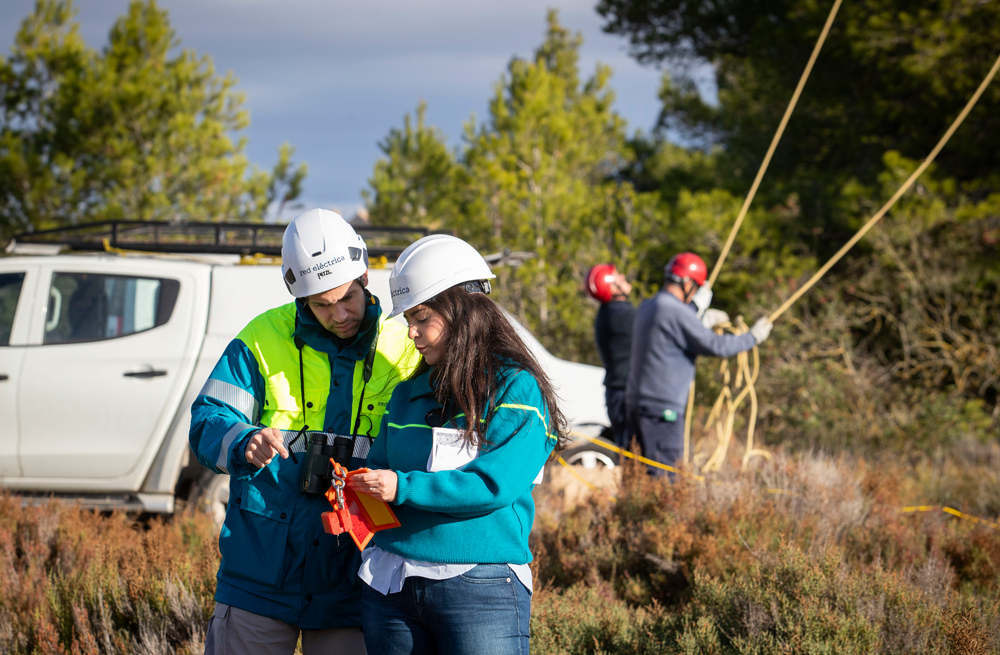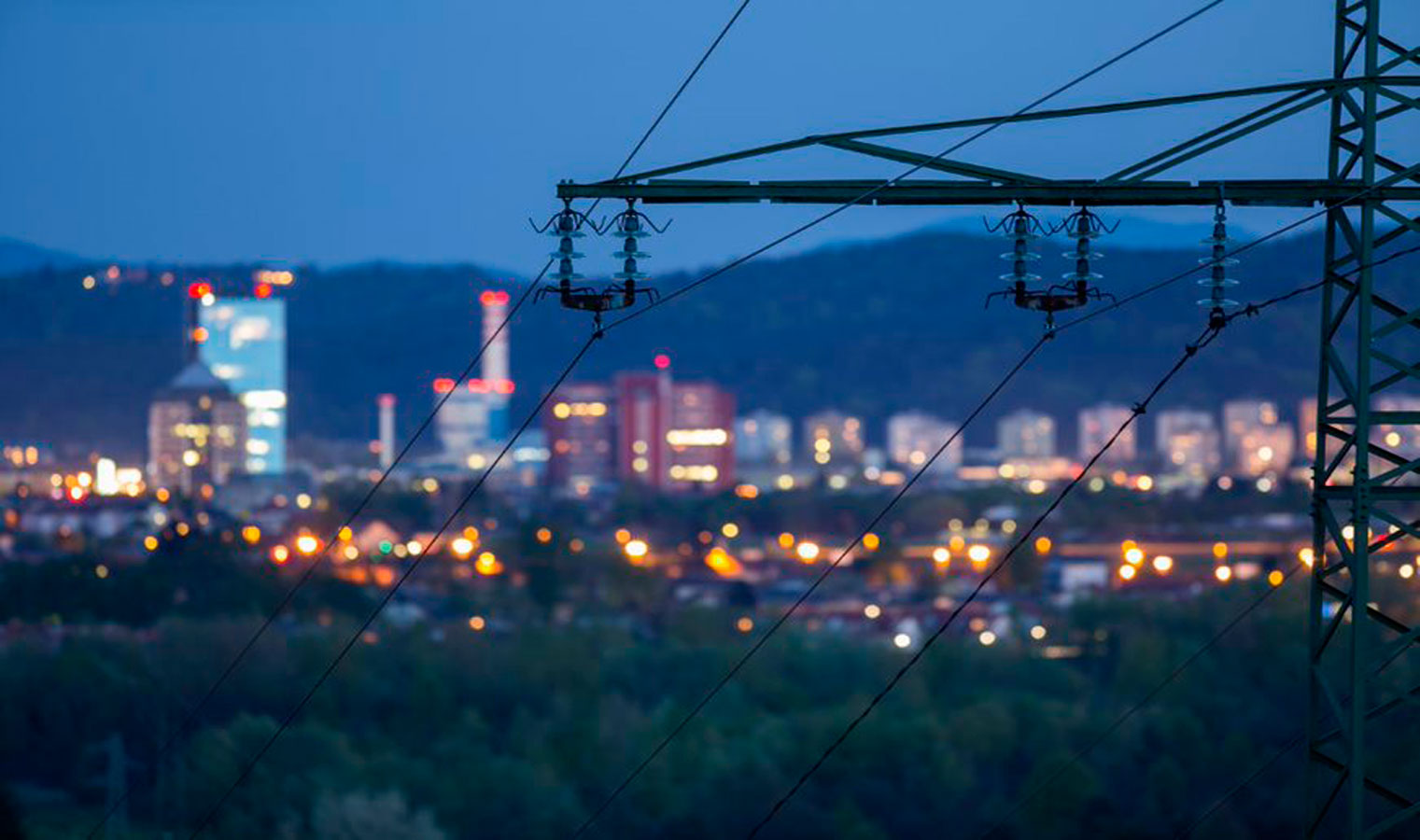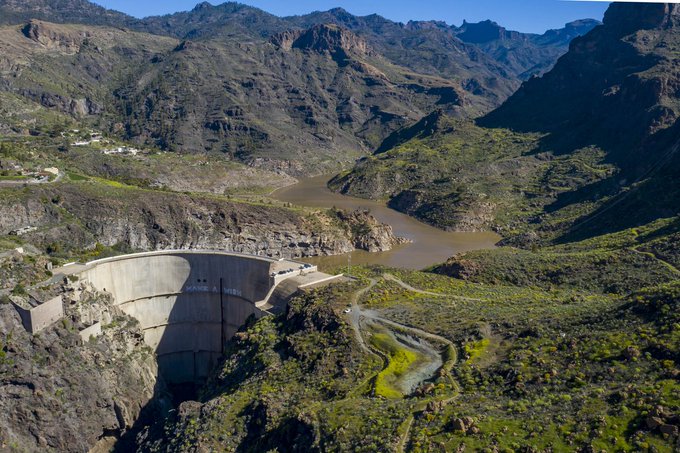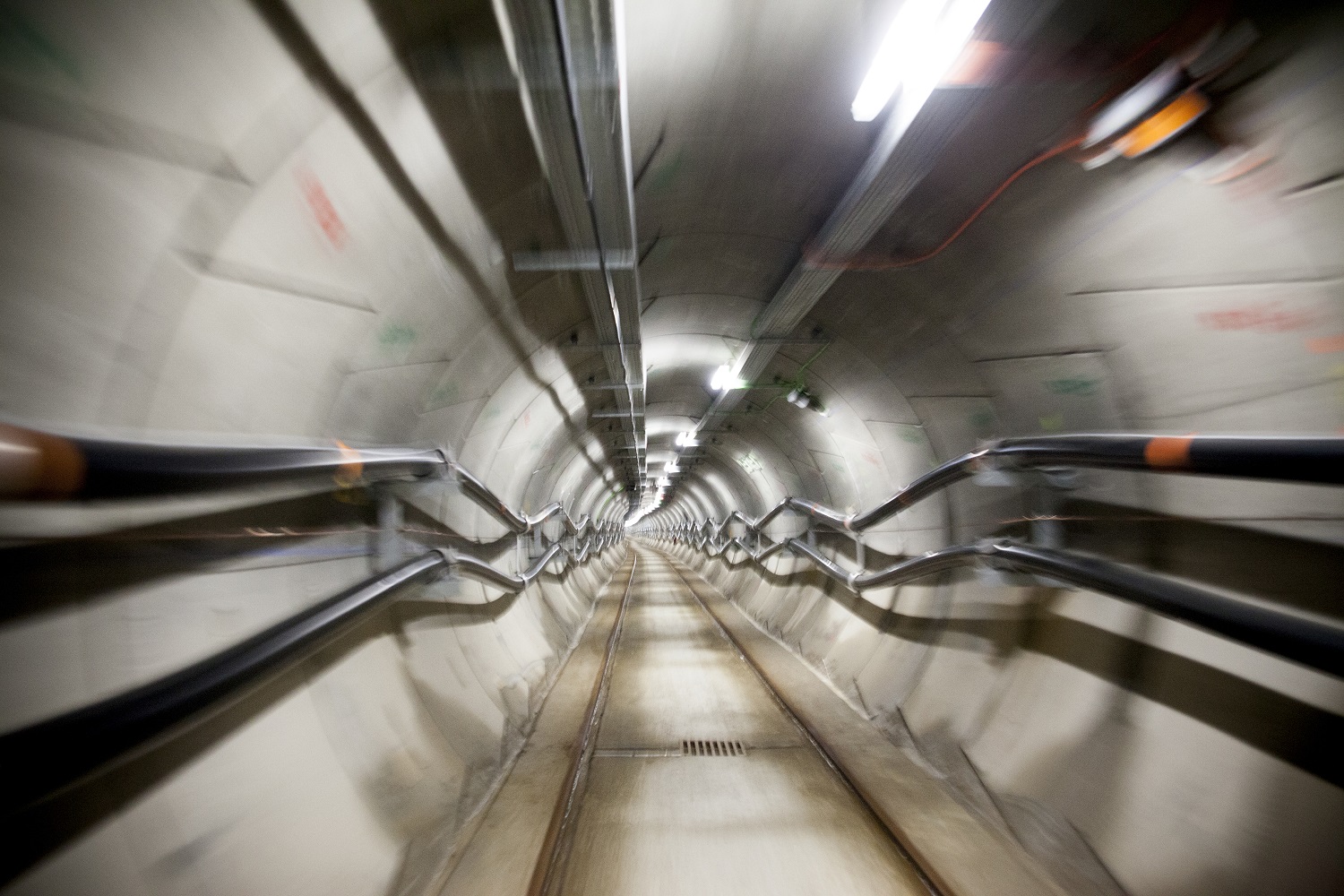Discover what Red Eléctrica is, what we do, and why we are the backbone of the electricity system in Spain and the ecological transition.
Holapueblo generates new inhabitants and businesses for around twenty municipalities in Spain’s uninhabited areas
- To date, 25 families, mostly couples between the ages of 41 and 50 with children, have settled in 19 sparsely populated municipalities located in Huesca, Zaragoza, Soria, Burgos, Palencia, Guadalajara, Cuenca, Navarra, Almeria, Huelva, Malaga and Seville
- With Holapueblo's support, they have launched business ideas mainly related to the service sector, such as a law firm or a day centre, among others

A total of 19 municipalities with a low population density now have 64 new inhabitants, thanks to Holapueblo, a project by the Red Eléctrica Group, Correos (the national postal service) and AlmaNatura that promotes the repopulation and economic reactivation of towns in inland Spain. The villages in which the project has been established have, on average, fewer than 700 inhabitants and are located in Huesca, Zaragoza, Soria, Burgos, Palencia, Guadalajara, Cuenca, Navarra, Almeria, Huelva, Malaga and Seville.
Holapueblo encourages small towns to increase their capacity in order to attract and accommodate new settlers, and helps people looking to live and start a business in rural areas to develop their business ideas and find the municipality that best suits their lifestyle and their business project.
Since launching back in 2020, the programme has supported 70 entrepreneurs. Of these, 25 have already moved in with their families and a further five will be doing so shortly. The predominant profile is that of couples aged between 41 and 50 with children. As for their businesses, run equally by men and women, most of them are in the tertiary sector. Ideas include a travelling optician’s, a law firm and a day centre for dependent people, plus ecological agricultural businesses and rural accommodation.
Almost 2,000 people have expressed an interest in moving to one of the 109 villages participating in Holapueblo, 38% of whom are of foreign origin, and of this percentage, 63% are residents in other countries. Argentina, Venezuela, Colombia, Mexico, the United States, Germany and the Czech Republic are some of the places of origin.
According to Antonio Calvo Roy, Sustainability Director at Red Eléctrica Group, results show that "rural Spain is an attractive option, both inside and outside the country, even though not all villages have the minimum conditions to welcome new settlers and not everyone who wishes to move there has business ideas that are sufficiently developed, profitable or viable to be started up in a non-urban environment. For this reason, the Red Eléctrica Group accompanies and advises all parties in this challenge against depopulation through the Holapueblo project, while engaging in other projects to eliminate inequalities related to territorial and demographic imbalance, such as the digital divide, child poverty or the lack of opportunities for women".
Elena Fernández, deputy director of international relations and sustainability at Correos, said: "Holapueblo helps people to rethink their lives and gives them the opportunity to work and develop a project from a village location. It is the perfect complement for the strategy and support that Correos is providing for the development of rural areas, with actions such as our 6,011 rural postmen and women offering services in homes that until now were only provided in offices and initiatives such as Correos Market, with which we offer entrepreneurs in the rural world a tool for the marketing and distribution of their products".
Offer of housing, internet and participating town halls, the key to attracting more people
Among the issues that have made families choose one village over another are: being situated less than an hour from a provincial capital and offering housing, basic education and health care services, a good internet connection and business facilities.
In turn, the degree of involvement and efforts made by local councils in establishing a new population has had a considerable influence. "It is key that town councils understand that an entrepreneurial business provides a great opportunity for its people to continue to thrive and, to this end, that it welcomes and accompanies people interested in carrying out their project there and raises awareness among the local population to make them feel welcome", explains Juanjo Manzano, co-founder of AlmaNatura. A good example is the initiative undertaken in Bargota (Navarra), where, in order to solve the lack of housing, the town council has raised awareness among neighbours and local authorities to create a rental housing stock, which has enabled an entrepreneur to move to the village.
The arrival of new inhabitants also generates a knock-on effect: the villages where families have settled are becoming more attractive and in turn receiving more people. This is the case of La Sotonera (Huesca), where four couples have set up home, and Tragacete (Cuenca), where there are already three families and a further three are in the process of moving in.
The registration period for a forthcoming edition will open soon for both municipalities and potential inhabitants. Both the registration and the entire mentoring and support process are carried out almost entirely digitally, which fosters the acquisition and improvement of digital skills in entrepreneurs and municipal teams. It also includes an internal social network, namely the Holapueblo Community, in which the new inhabitants share experiences, advice and create synergies and professional collaborations.
Another factor that influences the choice of destination is the existence of family roots, either one's own or through relatives. This has been the case for Raquel Feria and Manuel Redondo, who have set up a law firm in the Huelva municipality of Corteconcepción, in Sierra de Aracena. Born in the city of Huelva, the pandemic encouraged them to leave Barcelona and Madrid, where they lived respectively, to return to their homeland, while opting for a natural environment that offered them the opportunity to have their business make a difference. "We thought we could do more from a mountain location than in the capital, as there are far fewer legal services here," says Raquel. The purpose of their office, which specialises in administrative and private commercial law, is to guide local companies in presenting bids for public contracts. At the same time, they offer free advice one day a week to the municipality’s residents and entrepreneurs, thanks to a collaboration with the town council.
The mayor of Corteconcepción, Javier Ginés Vázquez, states that for a municipality that has been in demographic decline for 20 years, the arrival of Raquel and Manuel is highly positive, as is their business, since it covers legal advice requirements that otherwise local residents would have to go to the capital in order to resolve. Regarding Holapueblo, he says: "It has been a benchmark. This interaction channel between people who want to relocate to villages and the town councils that want and strive to improve the quality of life of our local residents is very useful".
